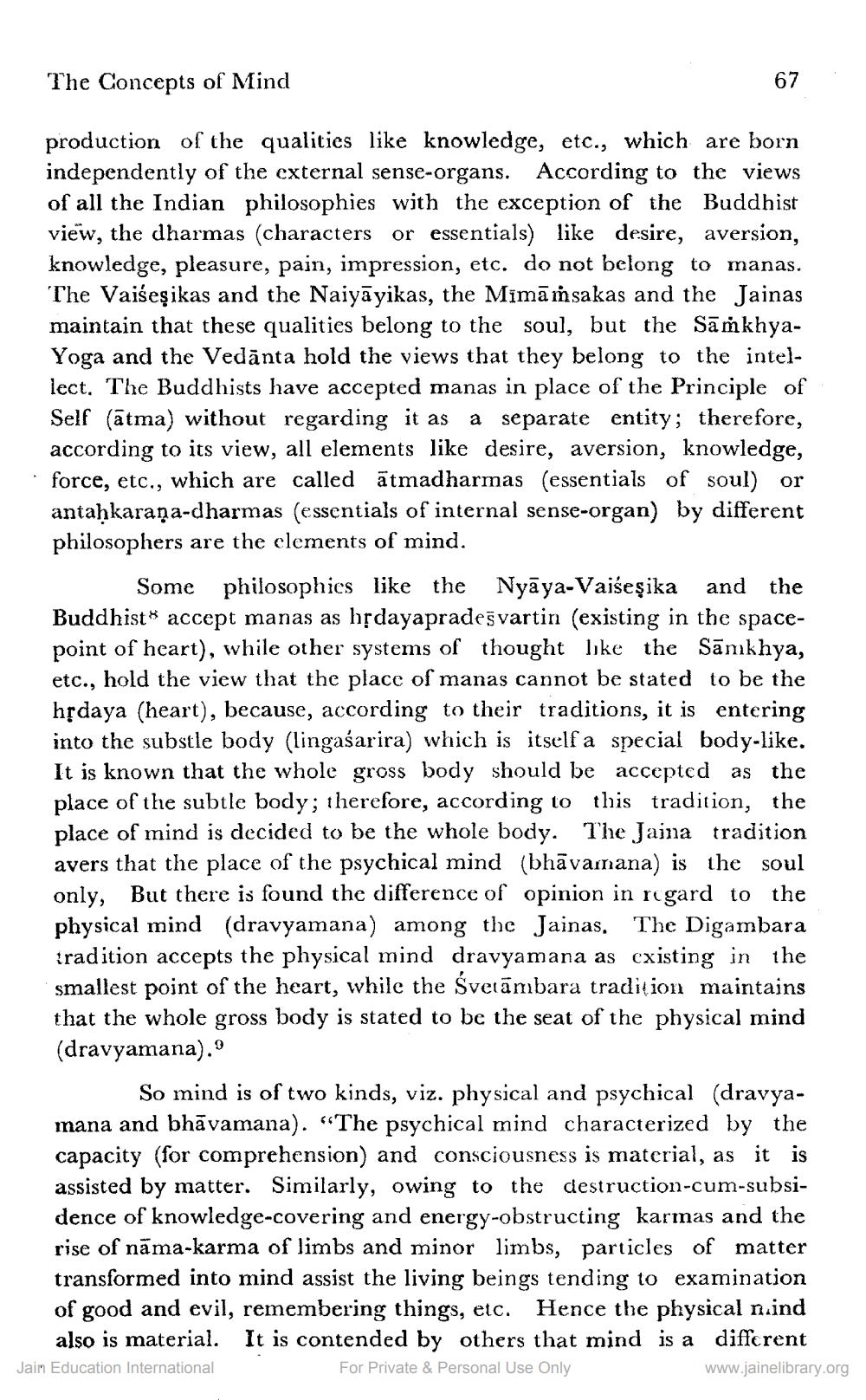________________
The Concepts of Mind
production of the qualities like knowledge, etc., which are born independently of the external sense-organs. According to the views of all the Indian philosophies with the exception of the Buddhist view, the dharmas (characters or essentials) like desire, aversion, knowledge, pleasure, pain, impression, etc. do not belong to manas. The Vaišeşikas and the Naiyāyikas, the Mimāṁsakas and the Jainas maintain that these qualities belong to the soul, but the SamkhyaYoga and the Vedānta hold the views that they belong to the intellect. The Buddhists have accepted manas in place of the Principle of Self (atma) without regarding it as a separate entity; therefore, according to its view, all elements like desire, aversion, knowledge, force, etc., which are called ātmadharmas (essentials of soul) or antahkarana-dharmas (essentials of internal sense-organ) by different philosophers are the elements of mind.
Some philosophics like the Nyāya-Vaišeşika and the Buddhists accept manas as hşdayapradeŝvartin (existing in the spacepoint of heart), while other systems of thought like the Sāmkhya, etc., hold the view that the place of manas cannot be stated to be the hşdaya (heart), because, according to their traditions, it is entering into the substle body (lingaśarira) which is itself a special body-like. It is known that the whole gross body should be accepted as the place of the subtle body; therefore, according to this tradition, the place of mind is decided to be the whole body. The Jaina tradition avers that the place of the psychical mind (bhāvamana) is the soul only, But there is found the difference of opinion in regard to the physical mind (dravyamana) among the Jainas. The Digambara tradition accepts the physical mind dravyamana as existing in the smallest point of the heart, while the Sverāmbara tradicion maintains that the whole gross body is stated to be the seat of the physical mind (dravyamana).
So mind is of two kinds, viz. physical and psychical (dravyamana and bhāvamana). “The psychical mind characterized by the capacity (for comprehension) and consciousness is material, as it is assisted by matter. Similarly, owing to the destruction-cum-subsidence of knowledge-covering and energy-obstructing karmas and the rise of nāma-karma of limbs and minor limbs, particles of matter transformed into mind assist the living beings tending to examination of good and evil, remembering things, etc. Hence the physical n.ind
also is material. It is contended by others that mind is a different Jain Education International For Private & Personal Use Only
www.jainelibrary.org




